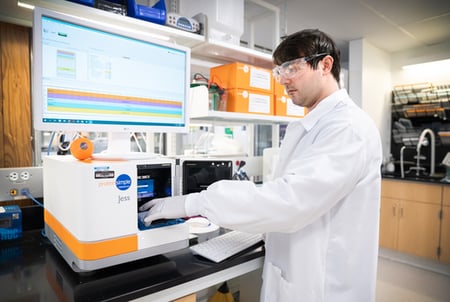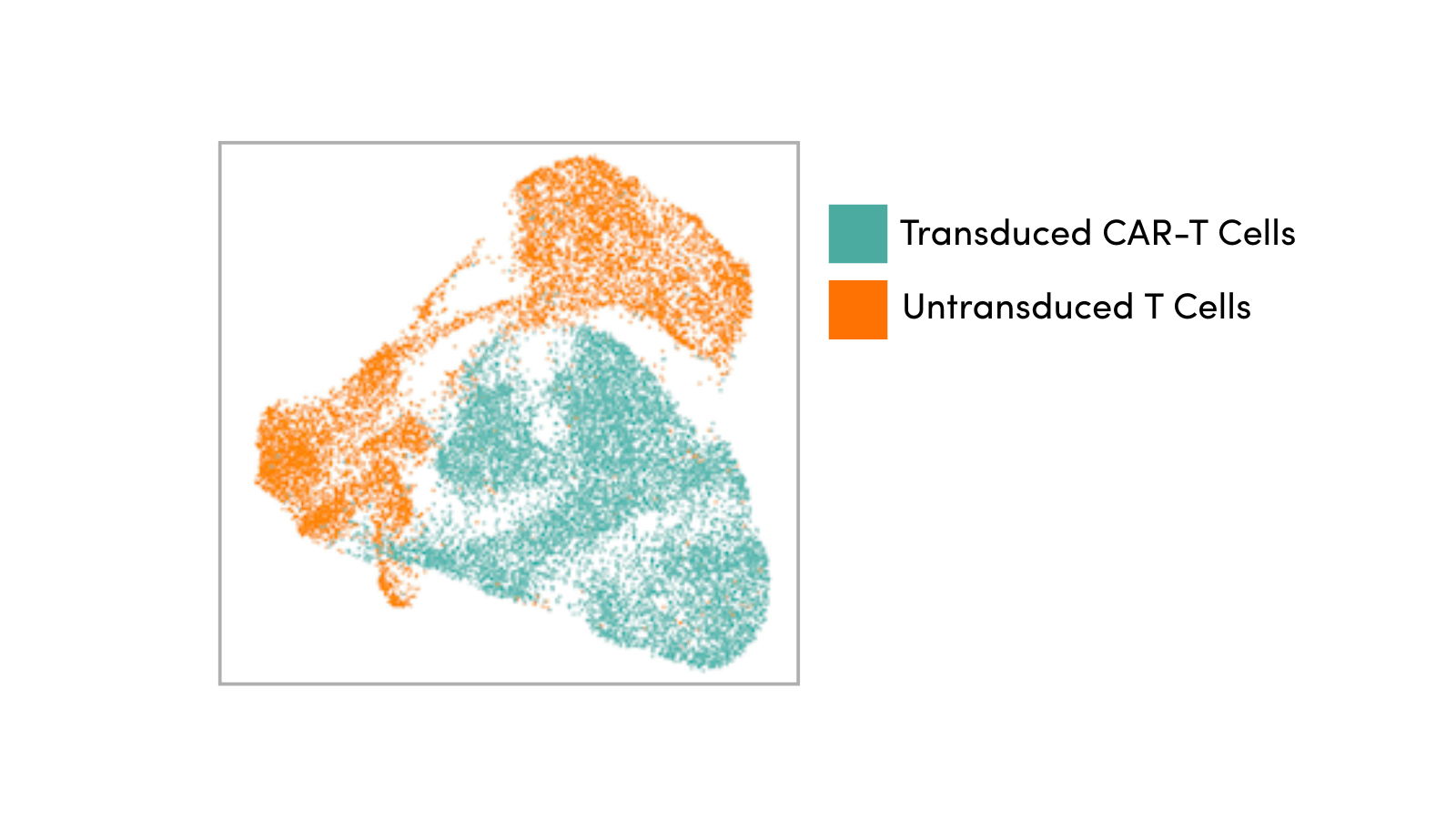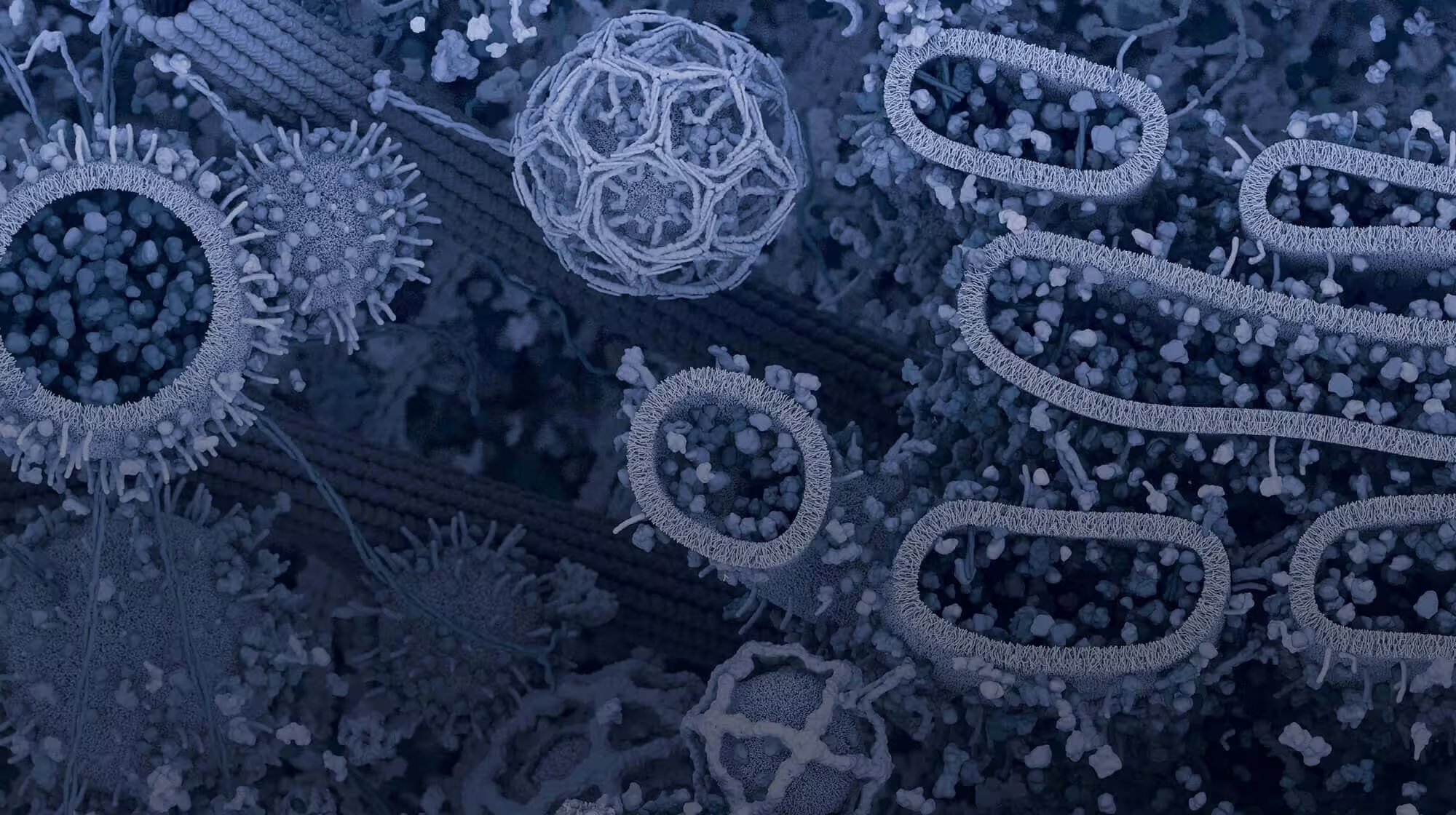Since 2022, Cell Signaling Technology (CST) and Bio-Techne have been working together to bring best-in-class CST antibodies to automated Simple Western™ platforms developed by ProteinSimple (a Bio-Techne brand) like the Jess™ instrument. Now, over 500 CST® antibodies have been validated for Simple Western platforms, driving innovation with unparalleled automation and high-throughput capabilities that empower you to achieve faster, more reliable results.
Our expansive portfolio includes many unique, modification-specific antibodies to support research in critical areas such as targeted protein degradation, CAR-T signaling, and neurodegeneration, and additional antibodies are always being tested and approved. Using our pre-validated antibodies, along with the suggested antibody dilution conditions, can help de-risk your critical research project, enabling reliable, reproducible results, even with limited or precious samples.

CST Senior Product Scientist Chris LaBreck with the Jess. Chris is the author of this blog and was instrumental in designing and implementing the screening process to validate CST antibodies on the Simple Western instruments. He is directly involved in the testing and approval of all reagents.
As you plan your next project, you might be wondering: How are CST antibodies validated for the Simple Western platforms? In this blog, we highlight one validation campaign as an example of the comprehensive testing each antibody receives, giving you the details you need to be confident in antibody performance.
How are CST antibodies validated for Simple Western?
All CST antibodies undergo rigorous validation in each application independently to ensure specificity and reproducibility, which is why our antibodies are the most cited research reagents year after year. We’ve taken the same meticulous approach with validation for the Simple Western instruments, and can now confidently guarantee the performance of over 500 CST antibodies in Simple Western workflows, not including additional customer-tested antibodies featured in Bio-Techne’s Simple Western Antibody Database.
Working with ProteinSimple, we jointly developed and implemented a screening process to test antibody performance in five main areas of interest, which are described below and demonstrated in the example shown in Figure 1. Antibodies are validated using a three-point antibody titration across a 25-fold dilution range and tested against a broad range of sample concentrations. Testing is conducted on the Jess instrument and analyzed using the Compass™ for Simple Western software.
To consider an antibody validated for Simple Western, it must meet the following criteria:
- Target Specificity: Specific peaks must overlap from the same sample concentration.
- Signal/Noise: The signal-to-noise (S/N) ratio must be greater than or equal to 20, and the peak signal must not be saturated.
- Peak Height: The peak height must be between 1,000 and 300,000.
- Baseline: The baseline must be less than 20% of peak height and below a threshold of 10,000.
- Controls: No cross-reactivity should occur between the primary antibody and Jess internal standards, or between the sample and the secondary antibody, demonstrated by the absence of additional peaks.
Taken together, these criteria confirm antibody performance on Simple Western instruments and allow us to identify and recommend a dilution range where antibody concentration is saturating, resulting in more consistent and reproducible results.
Let’s take a closer look at the results from some of our validation testing for Phospho-Akt (Ser473) (D9E) XP® Rabbit mAb #4060, which is shown in Figure 1 (Note: The red numbers in the figure correspond to the criteria numbers). The figure depicts antibody performance in the lane view (left) and electropherogram analysis (right) at the three different dilutions. In this example, antibody #4060 reaches saturation between a 1:10 and 1:50 dilution, which is the recommended concentration for this antibody (labeled “6” in Figure 1).
Figure 1. Simple Western validation testing for #4060. Left: Simple Western virtual lane view. Each antibody is tested at 1:10 (blue), 1:50 (green), and 1:250 (gray) dilutions against a low and high sample concentration. Right: Electropherogram analysis of three-point antibody titration. CST antibodies are evaluated for Simple Western performance by examining electropherogram data from a three-point antibody titration across a broad range of sample concentrations.
Figure 1 shows that #4060 meets all of the criteria described in the criteria list above, as summarized below:
- All three dilutions show overlapping peaks at the expected molecular weight.
- The S/N at the recommended antibody dilutions (blue and green curves) is 5,613 or greater.
- The peak heights at the recommended antibody dilutions (blue and green curves) are <100,000 and >140,000, which falls in the acceptable range.
- The baseline falls well below 10,000 and is less than 20% of the total peak height.
- The absence of additional peaks demonstrates that there is negligible cross-reactivity. Additional peaks would appear as teal and magenta curves in Figure 1 (right); in this example, the magenta curve is flat at the baseline near the #5 label.
For each antibody, we select a model that is known to exhibit positive target expression to use in our testing. Target expression is determined based on omics data, and verified independently using orthogonal approaches in-house. For #4060, we used Jurkat cells treated with Calyculin A (CalA) because Jurkat cells naturally express Akt, and treatment with CalA further enhances the detection of its phosphorylated form, making it a useful model for investigating the regulation of phospho-Akt expression.
After validation testing is complete, we approve the antibody for Simple Western only if the data meets our specifications. For each approved antibody, the recommended dilution range we suggest to launch your assay can be found in the associated product datasheet on the product webpage.
Detecting Low-Abundance Proteins Using Simple Western & Anti-CAR Linker Antibodies
Simple Western uses capillary-electrophoresis followed by covalent immobilization of the sample proteins and immunodetection to detect proteins in a highly controlled environment, which enables picogram-level sensitivity and ensures accurate quantification of low-abundance proteins. The improved sensitivity and control of Simple Western allows for the detection of low-abundance proteins with antibodies that may otherwise fail to reliably detect the same target by traditional western blotting due to insufficient sensitivity or specificity. This is the case for our CAR-T linker antibodies.
Our novel anti-CAR linker antibodies were specifically designed to detect a broad range of scFv-based CARs in flow cytometry assays. These include our Whitlow/218 Linker (E3U7Q) Rabbit mAb #57710 and G4S Linker (E7O2V) Rabbit mAb #71645, which are offered with various conjugations and in BSA and Azide free formulations.
Our Whitlow/218 Linker failed validation testing for traditional western blotting, initially limiting its use to flow cytometry. However, the antibody showed exceptional performance on Simple Western instruments, for the first time enabling the precise detection and quantitative characterization of CAR-T cell signaling dynamics (Figure 2).
Figure 2. Simple Western analysis of lysates from parental Jurkat cells, and Jurkat cells engineered to express an scFv-based Anti-CD19 CAR containing a Whitlow/218 linker (Jurkat/CD19 CAR) using Whitlow/218 Linker (E3U7Q) Rabbit mAb #57710. The virtual lane view (left) shows the target band (as indicated) at a 1:10 dilution of primary antibody. The corresponding electropherogram view (right) plots chemiluminescence by molecular weight along the capillary at a 1:10 dilution of primary antibody in parental Jurkat cells (black line) and Jurkat cells engineered to express an scFv-based anti-CD19 CAR containing a Whitlow/218 linker (Jurkat/CD19 CAR) (red line). There is a non-specific peak observed at 134 kDa in lysates prepared from both cell lines. This experiment was performed under reducing conditions on the Jess, using the 12-230 kDa separation module.
This is an extremely exciting example of how bringing CST antibodies to Simple Western helps address the limitations of traditional western blotting. Simple Western offers greater sensitivity for low-abundance proteins, precise quantification of modifications like phosphorylation, and clearer signals with reduced background noise. Additionally, Simple Western's reduced sample requirements make it possible to study limited samples, such as patient-derived CAR-T cells or neuronal cell populations, overcoming the challenges of variability and sensitivity in traditional western blotting.
Simple Western: A Faster, Automated Alternative to Traditional Western Blotting
Not familiar with Simple Western? The Simple Western instruments offer a faster, automated, and quantitative alternative to traditional western blot. Using capillary electrophoresis, it allows for protein separation and ultra-sensitive, picogram-level immunodetection in less than three hours, significantly reducing manual steps and errors.
Traditional western blotting is a time-consuming process that often takes multiple days and requires several manual steps, increasing the potential for experimental error. Moreover, chemiluminescence-based detection using traditional western blotting is non-quantitative, further limiting accuracy. Simple Western provides more precise, reproducible results, requiring as little as 3 µL of sample.
CST antibodies used in traditional western blotting are easily adapted to Simple Western systems, with CST antibodies featured in over a quarter of the publications related to Simple Western. Through our partnership with ProteinSimple, we can now guarantee the performance of our best-in-class antibodies in automated Simple Western workflows. Our fit-for-purpose validation streamlines assay development by providing the ideal antibody dilution range to use as a starting point for more specialized Simple Western applications.
Antibodies You Can Trust for Your Simple Western Experiments
CST antibodies validated for Simple Western enable high-throughput, reproducible detection of low-abundance proteins, biomarkers, and transient post-translational modifications, which is crucial for applications like drug discovery, personalized medicine, and studying diseases with limited clinical samples. Its sensitivity and automation make it particularly valuable for analyzing small or precious patient samples while ensuring consistent results across experiments.
Our expansive portfolio of over 500 CST antibodies validated for automated Simple Western platforms helps you overcome the limitations of traditional western blotting. The fit-for-purpose validation enables faster, sensitive, and reproducible assay development on Simple Western platforms like the Jess, providing a powerful tool for advancing scientific discovery.
Additional Resources
- Read the Bio-Techne guest blog post Introducing CST Antibodies Validated for Simple Western–An Automated Capillary Electrophoresis Immunoassay
- Learn more about our novel anti-CAR linker antibodies in the blog post Faster CAR-T Cell Detection with Flow Cytometry-Validated Anti-CAR Linker Antibodies






